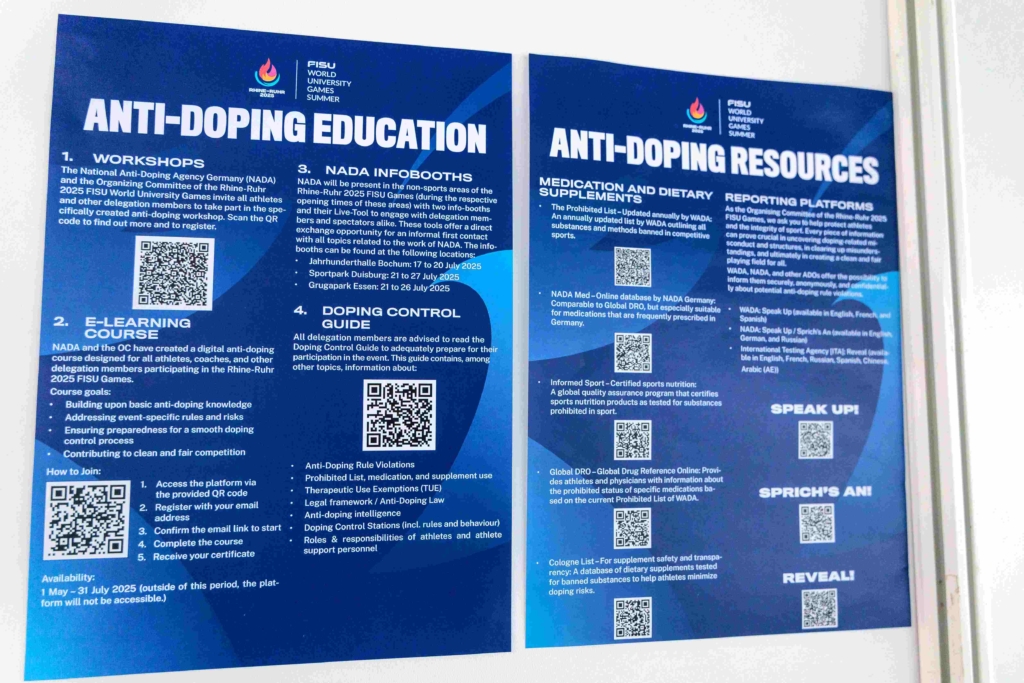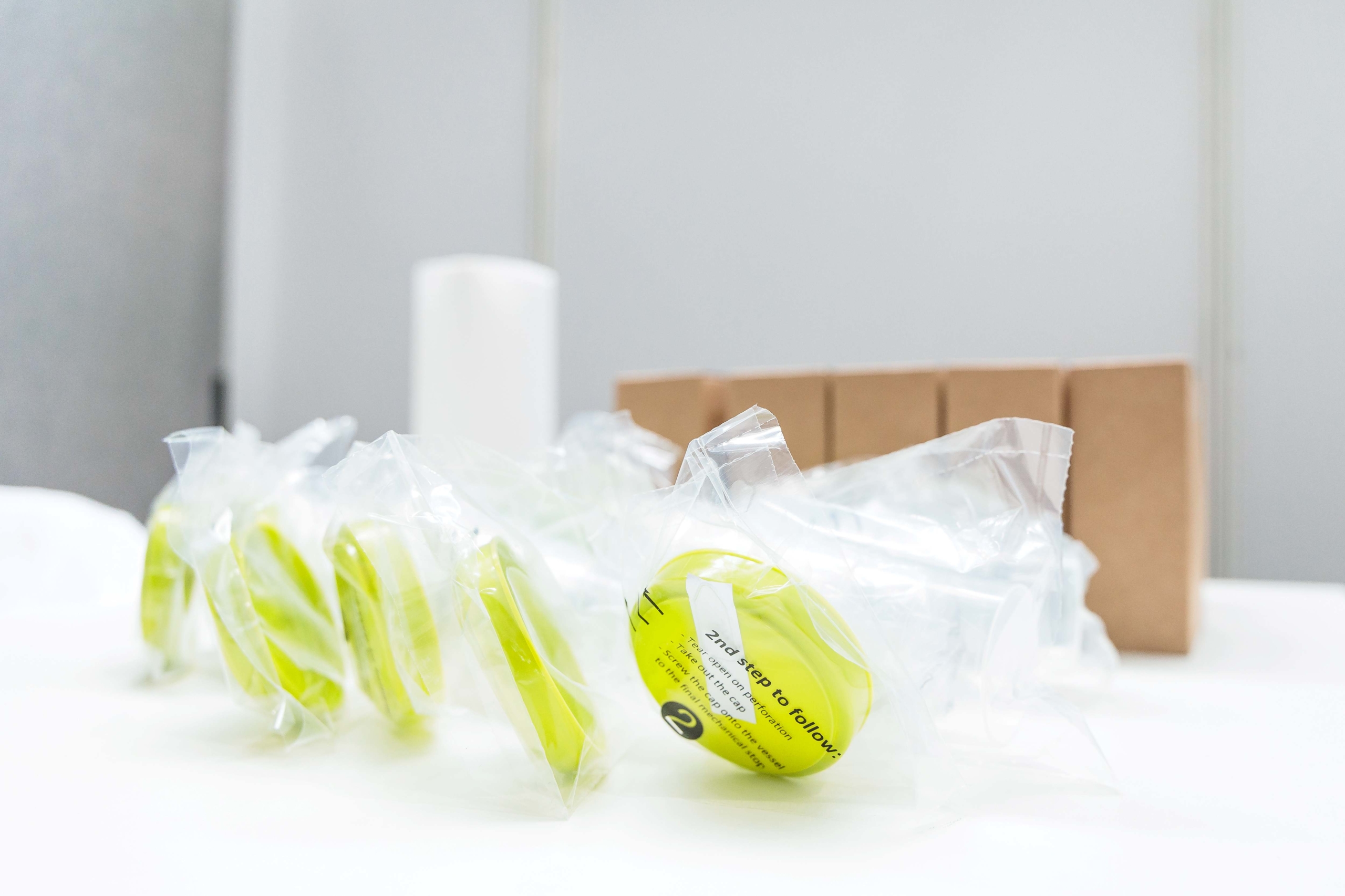In the world of competitive sport, athletes are constantly striving to be faster, stronger and better, sometimes pushing themselves beyond the limits of fair play. Doping, which involves the use of banned performance-enhancing substances by the World Anti-Doping Agency (WADA), is one of the most controversial topics in high-performance sport.
At every FISU World University Games, the FISU International Medical Committee (CMI) plays a key role when it comes to doping control and education — not only by educating student-athletes about substances and the importance of health, but also by making sure everyone has a fair chance to win the competition through strict drug testing.
The FISU Young Reporters Programme sat down with Tapio Kallio, Vice Chair of FISU’s CMI, as well as volunteer Sascha Petereit to get some insights on the topic.
Doping control can be challenging
“Every athlete can be selected for an out-of-competition doping control, but most often we conduct checks after a competition,” explained Kallio, a doctor from Finland. “If we check after a competition, the urine sample needs to be collected as soon as possible, which can be challenging and take some time, especially when the athletes are nervous,” he added.
Kallio has been an active member of the CMI for more than four decades and has conducted countless doping controls over that period.
To prevent cheating, a nurse or other medical professional accompanies the student-athletes while they provide the sample. According to Kallio, most athletes at the FISU Games have stayed clean and done their best on the field of play without cheating. “It does not happen often, but when we notice something unusual, we still have to check,” he said.
As these FISU Games have just begun, many doping controls will still be conducted by the CMI. Because of that, Kallio and the entire team will be very busy making sure that all athletes compete fairly and follow the rules.
A volunteer job to remember
When Petereit applied as a volunteer for Rhine-Ruhr 2025, he did not know what position he would get. Now he assists the CMI in every matter and could be considered Kallio’s right-hand person.
A local resident from the region, he enjoys being part of major sporting events each year. These FISU Games are particularly special to him because they take place in his own neighbourhood, and he appreciates his role as a volunteer attaché.

“It is very interesting for me to get a behind-the-scenes look at Rhine-Ruhr 2025, especially with regard to drug testing and ensuring fair play on the field,” he said, as Kallio entered the doping control area to prepare checks for athletes.
The Rhine-Ruhr 2025 FISU World University Games take place from 16-27 July. Watch all the competitions live on fisu.tv. Click on the link to find the full schedule.
Written by Johanna Horn, FISU Young Reporter, Germany
The Young Reporters Programme exemplifies FISU’s commitment to more than sports competitions. At every FISU World University Games, a group of talented aspiring sports journalists are chosen to cover the competition.

We warmly thank FISU Official Partner Qiaodan Ltd. which provides remarkable uniforms to FISU Family and International Technical Officials since 2015. Qiaodan is a valuable partner for FISU as it continued to provide its support during the postponement of events due to the global pandemic, and recently extended the relationship with FISU up to and including 2025.
